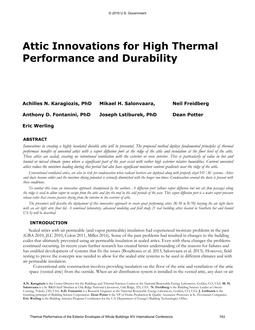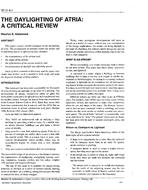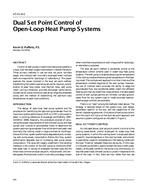Airflows in confined spaces such as airplane cabins, animal enclosures, human occupied rooms, etc. are always characterized by low velocity and high turbulent intensity. The flow regime (laminar, transitional, and turbulent) is difficult to predict as it depends on many factors such as the room geometry, ventilation rate, temperature, and humidity, etc. In this paper, large eddy simulation (LES) was applied to investigate the airflows in a full-scale room at different ventilation rates ranging from 0.1 ACH to 27.9 ACH (Air Change Per Hour), with the focus on the underlying flow physics such as flow regime, development of vortices, etc. It was found that, at the present room configuration, airflows were fully developed at ventilation rates equal to or higher than 19.5 ACH, which was supported by the investigation of mean velocity, spanwise vorticity, sub-grid constant, and viscosity ratio distributions. Close examinations of the vortex structures inside the room showed that they were three-dimensional in most regions of the room except near the inlet. The sidewall effects were limited to wall regions and did not affect the flow patterns in the middle plane, as shown by the vortex cores distributions and limiting streamlines on the ceiling and floor. Finally, the counter gradient transport phenomena (CGT) were observed when the ventilation rate was higher than 1 ACH. The existence of CGT partly explained the difficulties of some commonly used two-equation Reynolds Averaged Navier-Stokes (RANS) turbulence models, which are based on gradient transport assumption, in the prediction of indoor room airflows.
Units: Dual
Citation: ASHRAE Transactions, vol. 115, pt. 2, Louisville 2009
Product Details
- Published:
- 2009
- Number of Pages:
- 17
- File Size:
- 1 file , 1.5 MB
- Product Code(s):
- D-LO-09-083


